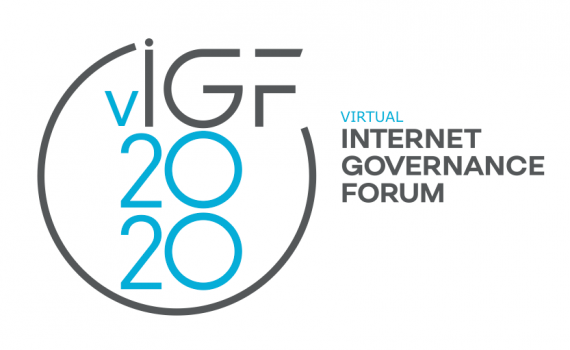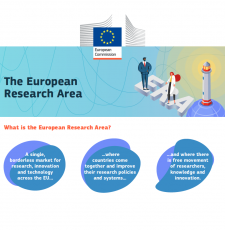
The Internet Governance Forum (IGF), an annual forum that brings together stakeholders from government, industry and civil society to discuss public policy issues relating to the internet, was held online this year from 2 - 17 November. For 12 days, the IGF 2020 digital platform was buzzing - with a record 6,000 participants from 173 countries. Ramune Petuchovaite, Manager of the EIFL Public Library Innovation Programme (EIFL-PLIP), reports.
The theme of IGF 2020 was ‘Internet for human resilience and solidarity’. Throughout the conference, speakers stressed the vital importance of the internet in connecting communities during the COVID-19 pandemic, and in building a strong recovery.
COVID-19 underscores ‘the depth and gravity’ of the digital divide
Volkan Bozkir, President of the UN General Assembly, set the scene with a statement that was bold, but far from cheerful: “The SDG (sustainable development goal) target of achieving universal connectivity by 2020 has not been met.” The COVID-19 pandemic had underscored the depth and gravity of the digital divide, and was eroding development gains in countries and communities that were disconnected from the rest of the world.
“Deprived from an important means of development and adaptation to this pandemic, these countries and communities are at risk of losing an entire generation’s worth of hard-won development gains,” he warned.
Liu Zhenmin, UN Under-Secretary General for Economic and Social Affairs, reminded us of some grim statistics: “3.6 billion people continue to lack access to the internet. Only 19% of people in Least Developed Countries have access to the internet.”
He urged the IGF community to continue working together towards universal access, while focusing on four key areas: closing the digital divide; eliminating the gender digital divide; making the internet affordable for all, and investing in digital literacy, capacity building and creation of local content.
Several speakers referred to the UN Secretary General’s Roadmap for Digital Cooperation, which aims to narrow digital divides, promote digital inclusion, achieve universal connectivity and protect human rights online. There were also calls to revisit current business models and policy approaches.
Chat Garcia Ramilo, Executive Director of the Association for Progressive Communications, spoke about policy and regulatory support for local connectivity: “We need complementary models for connectivity. We cannot rely any longer on big telecommunications, because they will not go to where there is no profit. We do have models now of community connectivity,” she said.
Professor Jeffrey Sachs, Director of Centre for Sustainable Development, Columbia University, emphasised the need for improved regulations, and called on global players in the telecommunication sector and big tech companies to play their part in closing the digital divide. He said the 2030 deadline for universal access was too far away: “It can't be dragged on for the next 10 or 20 years, because we can't actually expect any part of the economy to function without digital access now.”
Digital inclusion in practice
I attended several sessions focused on digital inclusion, hearing about good practices in narrowing the digital divide. I found three sessions, tackling the issue of digital inclusion from different angles, particularly inspiring and insightful:
- ‘Internet Governance with and for the Citizens’ (4 November), featuring the initiative ‘We, the Internet’, that brings together voices of citizens and stakeholders from around the world on the future of the Internet. Watch the discussion here.
- ‘Community Network, Electricity and Digital Inclusion’ (9 November) on the community networks best practices, innovative solutions and future development in the light of Covid-19 pandemic. Watch the discussion here.
- ‘People-focused Smart Cities’ (3 November), in which presenters described initiatives from cities around the world. Among them was an interesting example involving public libraries, the Bibliothek service in Tirana, Albania, in which four libraries equipped with public access computers and the internet are helping to reduce digital illiteracy among citizens. Watch the discussion here.
Libraries in the internet governance dialogue
At EIFL, we promoted IGF 2020 events, encouraging librarians to follow live streaming and to take part in discussions. The forum presents a good opportunity for international networking and learning about policy dialogue in relation to the internet.
EIFL and IFLA (the International Federation of Library Associations and Institutions) co-organized a session of the Dynamic Coalition for Public Access in Libraries (DC-PAL), which we co-founded with IFLA in 2011. The theme of the session was ‘Equitable access to digital content: lessons from COVID-19’.
Teresa Hackett, EIFL Copyright and Libraries Programme Manager, said that in a pandemic, access to knowledge had become a public health issue. Visiting a physical library, working in a library, and handling library books are all public health risks. And copyright restrictions, and the acquisition of e-books have emerged as major challenges for librarians trying to support online education during the pandemic.
“Take for example, a university library that has multiple copies of a textbook on their shelves”, said Teresa. “The students need access to the book, but they can't get it because the library building is closed. At the same time, the library finds that it cannot purchase an electronic version because publishers want to sell e-textbooks directly to students, not to libraries.”
In addition, copyright could facilitate social distancing, she said. “If your copyright law contains flexibilities allowing a library to make a digital copy of an article or a book, for example, and to send it to the user, then the user doesn’t need to visit the library. In this way, copyright exceptions facilitate social distancing to help stop the spread of coronavirus.”
Addressing the issue of public access to digital technology, Valensiya Dresvyannikova of IFLA presented a joint EIFL-IFLA study, ‘Public Access in Libraries: Achievements and Insights from Broadband Policy Implementation'. The study examined the impact of national broadband policy implementation on public internet access in libraries, and on library services, in five countries: Colombia, Kenya, Lithuania, the Philippines and Romania. The paper identifies emerging themes and good practices in broadband policy implementation. It is a sequel to and supplements research conducted by EIFL and IFLA in 2019 comparing how different national broadband plans and policies envision the role of public libraries in connecting people to the internet. The earlier research, ‘The Role of Libraries in National Broadband Plans and Policies’, was presented at the 2019 IGF session of the DC-PAL.
The session concluded by defining four policy issues for equitable access to content and information during the pandemic and future recovery:
- Access to relevant content, especially during the pandemic, is integral to sustaining and supporting education, employment, health, citizen participation.
- Expanding the rollout of connectivity infrastructure and capacity-building for libraries helps ensure equitable access to content for the public.
- Innovative and emerging solutions and practices also offer valuable models for supporting digital inclusion, for example, using bands of spectrum open for public use (i.e. TV White Space) for broadening connectivity, offline internet and controlled digital lending.
- It is important to ensure that existing Intellectual Property frameworks and mechanisms offer a supportive policy environment.
Watch the full DC-PAL session on the IGF YouTube channel.
IGF 2021 planning has already started. IGF 2021 is scheduled to be held live next year from 6-10 December in Katowice, Poland.
Find out more about IGF 2020, download session recordings and transcripts, and join the conversation on internet governance here.
SHARE / PRINT







